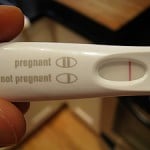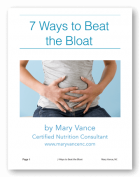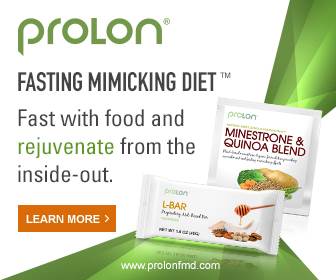As a practitioner with a focus on helping women, I encounter many women struggling with infertility. It can be very disheartening to try for a pregnancy that never seems to come. I want to share some very specific tips for eating for health during preconception. I have written about the inability to conceive before on this site, but I’d like to share more about nutrition and preconception. After all, nutrition is the basis of health, and it only makes sense that both parties need to consume a nutrient-rich whole foods diet to provide precursors to healthy hormones.
Infertility refers to a couple who cannot become pregnant after trying for a year. Before I get into diet, the most obvious causes include problems with ovulation, blocked tubes, PCOS (Polycystic ovarian syndrome), or fibroids. Underlying causes include low progesterone, parasites or pathogens in the gut, or too many toxins, either produced internally due to metabolic processes or from a processed diet. Ask yourself these questions:
-have I recently stopped taking birth control pills?
-do I have irregular menstrual cycles?
-am I under a great deal of stress, either physical or emotional or work?
-do I have digestive issues like yeast infections, heartburn, constipation/diarrhea, indigestion, or bloating?
-am I overweight?
-do I have a hard time with seasonal allergies?
-do I get frequent headaches?
-do I have acne or problem skin?
Answering yes to any of these questions can signal underlying imbalances in your hormonal, digestive, or detox systems, and imbalances in any of these three systems can contribute to infertility. Now, let’s take a look at diet.
Ask yourself these questions:
-am I vegetarian or vegan?
-do I eat soy products or drink soy milk?
-do I consume bread, pasta, cereal, or bagels? Foods with white flour or white sugar?
-do I consume low fat or fat free dairy?
-do I have a past history with eating disorders? with alcoholism?
-do I eat a lot of processed foods that come in a box? And yes, this includes the boxed “health food” you get from Whole Foods or the natural foods store.
-Am I drinking coffee? Soda?
-Do I use canola, vegetable, corn, coy, or soy oils?
Do any of these sound like your typical day?
-I drag myself out of bed at 7am after 6 hours of sleep and guzzle coffee to get going.
-For breakfast I have cereal with skim milk or a pastry.
-I skip lunch.
-I have a handful of M&Ms for a mid-morning snack.
-I have a “healthy” vegetarian lunch consisting of a spinach salad.
-I have more coffee or a soda at 3pm when I’m about to fall asleep at work.
-I have a bowl of pasta with 2 glasses of wine for dinner.
-I have Hamburger Helper with an iceberg lettuce salad for dinner.
If you answered yes to any of these–even just one– let’s have a little chat. Diet is very important to pregnancy, and you should begin thinking about nutrition months before conception. Kick the refined foods: no refined flours, sugars, oils, meats or dairy. What you need is nutrient dense foods that support hormonal and digestive health and will not add excess toxins to the body.
On the NO list:
-sugars: no corn syrup, sodas, white sugar, fructose, splenda, aspartame (fake sugars)
-factory farmed meat & eggs
-excess coffee, especially if it’s not organic
-gluten
-soy products or soy milk
-refined fats: dump the ‘vegetable oil’ in the plastic jug that contains canola, soy, corn, cottonseed oils or hydrogenated trans fats.
-low fat or fat free dairy
The foods in the above list rob your body of health and fertility. They cause inflammation in the digestive tract, which prevents your body from absorbing the very important nutrients it needs to make hormones and other tissue. They are toxic, and these toxins are stored in fat cells, building up in body tissues and adversely affecting hormonal balance. They lead to too much estrogen and not enough progesterone (estrogen dominance).
Here is your fertility diet:
-organic meats and eggs (meat raised without hormones or chemicals)
-full fat, raw dairy and whey, if you are not dairy intolerant
-raw butter
-cod liver oil, a great source of vitamins D & A
-tons of organic veggies: leafy greens like kale & chard, crunchy carrots and cucumbers, beets and broccoli, all of it.
-seasonal fruits–eat nature’s candy instead of sugary sweets
-probiotic foods like raw sauerkraut for digestive health
-green or herbal teas instead of chugging coffee
-lots of filtered water
This fertility diet is for both men and women. Kick the booze and coffee, too, if you are having trouble with conception: both can block fertility. This is a whole foods, organic, unprocessed nutrient dense diet that will boost fertility. Added benefit: you’ll feel great! Also, notice this is NOT a vegetarian or vegan diet. If you are struggling with fertility and are a veg, please try adding nutrient rich bone broths or organic chicken and fish to your diet. Or maybe bacon, the gateway meat! No skipping meals: each meal should contain plenty of veggies; good fats like coconut oil, flax oil, olive oil, or avocado; plenty of eggs (a fertility food!); and organic meat and wild fish (avoid tuna and the mercury rich fish). Get booster foods like sea veggies, green superfood spirulina blends, and probiotic foods like kraut.
There are a few herbs you can add into your routine. I’ll cover that next.
Recommended Reading: Honoring Our Cycles, by Katie Singer
The Natural Pregnancy Book, by Aviva Jill Romm

Mary Vance is a Certified Nutrition Consultant and author specializing in digestive health. She combines a science-based approach with natural therapies to rebalance the body. In addition to her 1:1 coaching, she offers courses to help you heal your gut and improve your health. Mary lives in San Francisco and Lake Tahoe in Northern California. Read more about her coaching practice here and her background here.







Very interesting post, diet and nutrition is most important even for people who are not trying to fall pregnant. This is very sound advice for all to read.